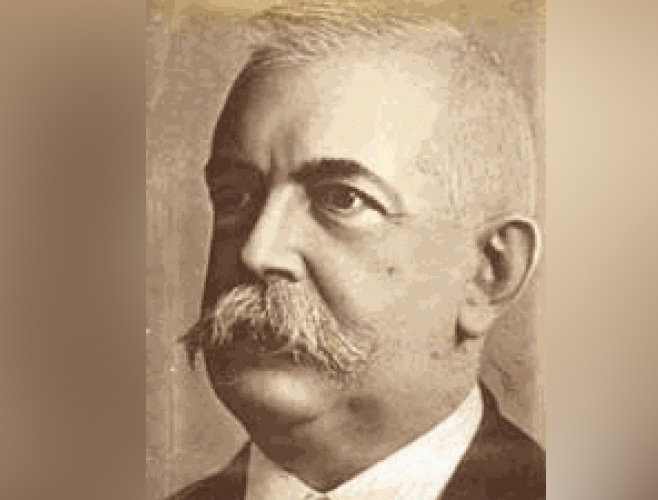Enrique José Varona, was a multifaceted personality of the intellectual life of the country, he contributed his talent to fields such as literature, sociology, psychology and philosophy; being a leading figure of recognized academic and political prestige. He was a doctor in Philosophy and Letters, as well as an essayist, pedagogue and mentor to the generation of the 1930s.
He was born on April 13th, 1849 in Puerto Príncipe, currently Camagüey. He started his studies in his native city, likewise the second education in the Pious Schools. At an early age he began learning languages, eventually mastering Latin, Greek, English, Italian, French, and German.
From a young age he proved to be a great scholar and in the vast library in his house he came into contact with the classics of Ancient Greek and Latin; also with the Spanish and with modern writers. He obtained a high school diploma from the Institute of Matanzas in 1891 and a Bachelor’s degree in 1892, from the University of Havana. He was a man who played an important role in Cuban thinking in the early 20th century.
He was always at the service of Cuba’s problems in the stage of transformation towards modernity, warning of the unfavorable conditions that the country was facing in comparison with the industrial development of other countries, as well as of the measures at the economic and political level to integrate the island to the development process. He was one of the most influential intellectuals on the island in the late 19th century and the first half of the 20th century.
Founder of the Conservative Party, which he presided over, he accompanied Major General Mario García Menocal as vice president when he was elected president of Cuba. In 1868 he joined the independence struggle in the Cuban fields and returned home due to health problems.
He began to stand out with his literary works in the newspapers El Panal, El Triunfo, Revista de Cuba and in Revista Cubana, founded by him in 1885-95. In 1880 he was already giving philosophical conferences at the Academy of Sciences, divided into three parts: Logic, Psychology and Morals. In 1883 he published Literary and Philosophical Studies, perhaps the most significant work of his ideology.
His passion for literature began very early, as evidenced by the award given by the Liceo de Puerto Principe to his Ode on the occasion of the death of Gaspar Betancourt Cisneros, presented to the first floral games, in 1868, and in that same year he began also his literary collaborations in El Fanal, in the city itself.
He writes in Patria two very significant documents Cuba against Spain and The Colonial Failure of Spain. These documents express the thinking and attitudes of Cuban patriots. Varona is considered by then as the philosopher of separatism.
His work
He directed the newspaper Patria when José Martí died. He published books of poetry and essays, and numerous newspaper articles. He was a member of the National Academy of Arts and Letters, of the Royal Academy of Medical, Physical and Natural Sciences of Havana, and of the Anthropological Society of Cuba, of which he held the position of President, as well as Honorary Professor of the University from Havana and Honorary President of the Academy of History of Cuba. He was a member of the Editorial Board of the Journal of the Faculty of Letters and Sciences of the University of Havana.
He had a notable influence on Cuban Education after the end of Spanish domination over the Island. He valued the delayed situation of Cuba and the negative effects produced by the war; this made it necessary to provide the people with formative, instructive and educational elements that, even taken from other experiences or contexts and re-evaluated in this scenario, they would allow the republic to achieve an economic development that would make life improvements possible among men. His pedagogical ideology reflected the need to train professionals, technicians and workers for the development of the country.
He was a university professor and notable essayist and philosopher. At the opening of the 1903-1904 school year, he declared “The research of science must be disinterested, but disinterested does not mean indifferent. It must encourage and move it the high and clear purpose that its acquisitions are directed to the betterment of man, to the good of the Homeland, to the improvement of civilization, which is the way the peoples have to contribute themselves to the betterment of humanity”.
He gave numerous lectures on the most varied topics, such as the one referring to Yankee imperialism in Cuba which he delivered at the Havana Academy of Sciences in 1921, and he prefaced different books, among them the Poesías de Luisa Pérez de Zambrana, published in La Havana, in 1920. His works have been translated into English, French and Italian. He collaborated in numerous national and foreign publications. He became an icon of the Cuban youth of the 1930s due to his principles. He passed away in Havana, on 1933.
Translated by: Aileen Álvarez García






